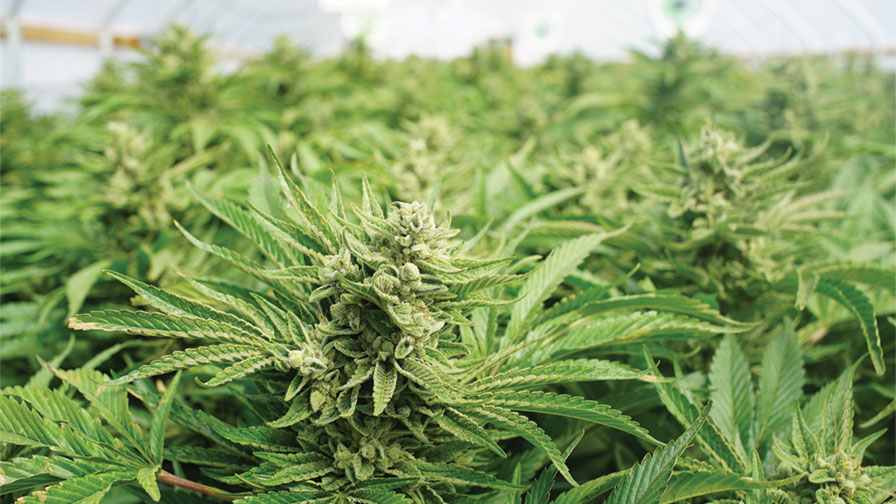How Adversity Can Create Opportunity for Ancillary Cannabis Industries

The state of the cannabis industry in 2020 is as complex as one would think thanks to multiple factors at play.
It has been a challenging year for most industries, and cannabis businesses are no different. But despite this difficult environment, adversity can create opportunity, particularly for industries that support cannabis producers.
Last year was groundbreaking in terms of moving federal policy reform forward. Congress easily reaffirmed for the fifth year that the Department of Justice may not waste resources interfering with state medical cannabis programs. For the first time, a congressional committee voted to approve a bill to legalize cannabis federally when the Judiciary Committee approved the Marijuana Opportunity, Reinvestment, and Expungement (MORE) Act.
Even more historic was the passage of the Secure and Fair Enforcement (SAFE) Banking Act by the House. This legislation would create a safe harbor for financial institutions to be able to work with cannabis businesses, and was passed in an overwhelming bipartisan majority vote in September. It is awaiting consideration in the Senate.
All in all, the industry was optimistic at the beginning of 2020. Newly opened markets in Illinois and Michigan were thriving. Dozens of states were set to consider legislation and ballot initiatives to enact medical and adult-use laws. Congress was already scheduling hearings on cannabis-related bills and support was growing.
Then COVID Happened
The pandemic has certainly hurt the industry and delayed reform efforts. Stay-at-home orders derailed signature gathering efforts for petitions in several states. Some state legislatures have abandoned efforts addressing cannabis bills in this session. Congress is focusing on other issues and appears unlikely to prioritize major stand-alone cannabis policy reforms this year.
More directly dangerous to cannabis businesses are the financial impacts of the coronavirus. Despite being declared essential in nearly every state with a regulated medical or adult market, the additional costs of continuing to operate while protecting employees and customers, as well as supply chain interruptions and onerous regulatory requirements, have hurt most businesses. Stock market fluctuations and recession fears have kept investors timid. All the while, cannabis businesses have been denied access to federal relief funds and loans.
There are some silver linings to this situation. The ability to stay open for business has allowed the cannabis industry to provide continuous healthcare while protecting tens of thousands of jobs and providing states with much-needed tax revenue. While there is variation from state to state and business to business, sales have remained relatively stable despite the recession.
Social distancing and other public safety protocols caused state and local regulators to allow things like delivery and curbside pickup that had previously been unavailable in many markets. Essential status is increasing support for reform in Congress and is necessitating closer working relationships with local authorities that could improve the regulatory environment going forward.
What Does all This Mean for the Greenhouse Industry?
Primarily, it creates an opportunity to help cannabis producers reduce long-term costs, and every business will be looking for ways to do this in the coming months. Indoor cannabis production is incredibly energy intensive, and outdoor production exposes crops to environmental threats like pests and cross-pollination from expanding outdoor hemp production. Greenhouse cultivation provides solutions to these problems while improving sustainability, and is becoming more attractive to producers as a way to lower their bottom lines.
Unfortunately, the recession and lack of access to capital will make it difficult for many businesses to be able to immediately afford infrastructure outlays. The greenhouse industry can use this to its advantage by extending credit and reasonable payment options to cultivators. The benefits of developing early relationships with them in their time of need will create downstream opportunities working with an industry that will soon represent a tremendous portion of the greenhouse market in the years to come.
There is still reason for hope in the second half of 2020 and beyond. Voters in a handful of states will vote on medical and adult-use ballot initiatives in November, and several more are actively pushing to take up cannabis legislation this session. Pandemic-related public safety concerns have created a pathway for the SAFE Banking Act language to become part of a coronavirus relief bill, and it has already been included in the latest round of stimulus funding approved by the House. Businesses are shifting focus to stability and beginning to attract renewed investor interest. And recent national conversations on social and criminal justice are increasing the calls for comprehensive federal cannabis policy reform.
Now is the time for agricultural support industries to seize on these opportunities by helping cannabis businesses thrive and developing relationships for mutual benefit far into the future.
Visit thecannabisindustry.org to learn more about the National Cannabis Industry Association.









